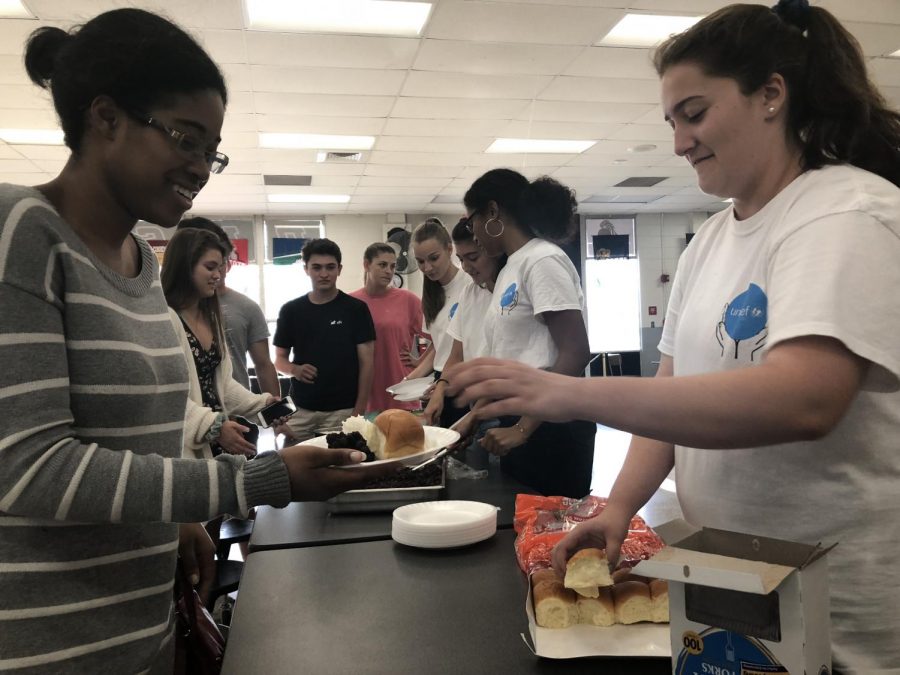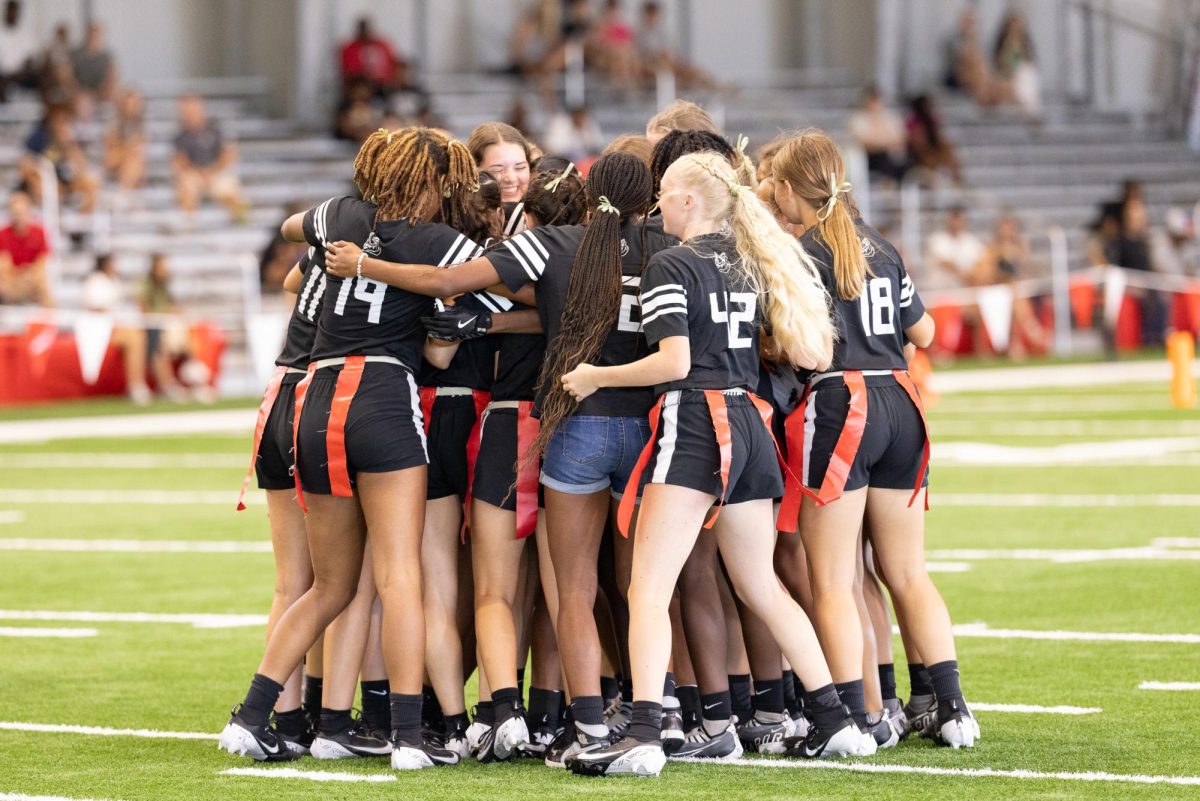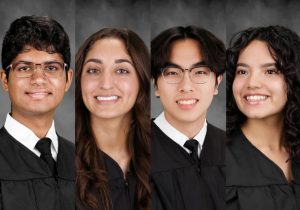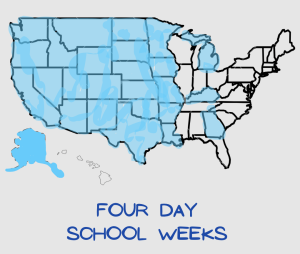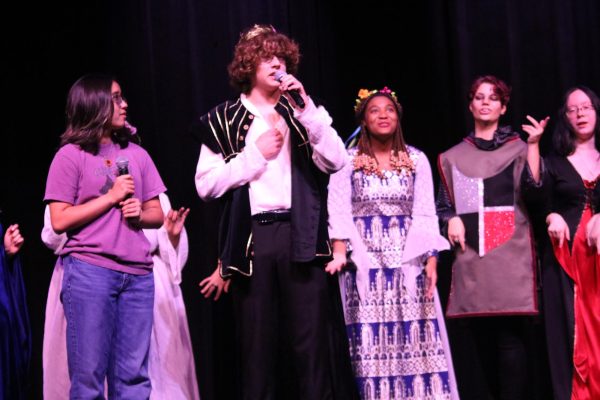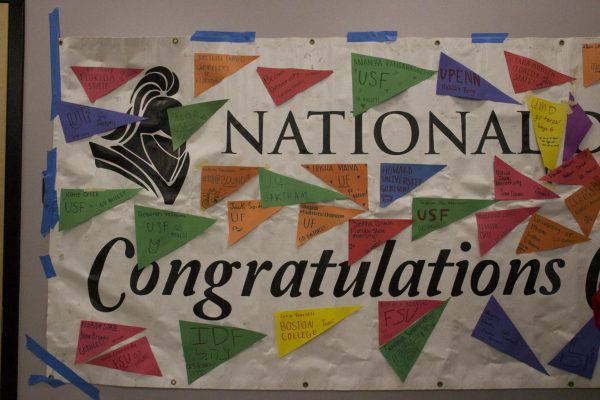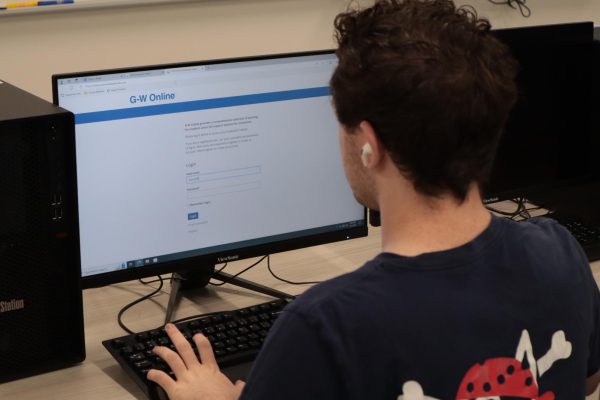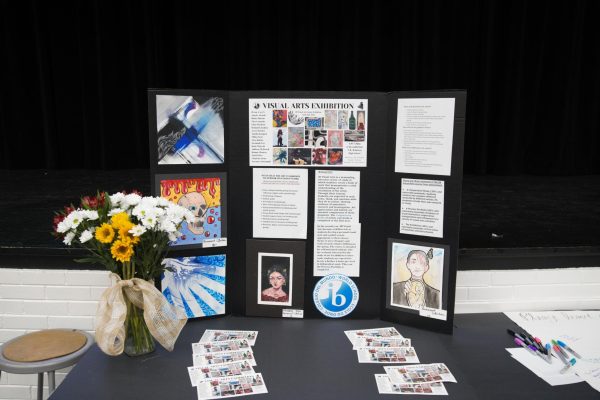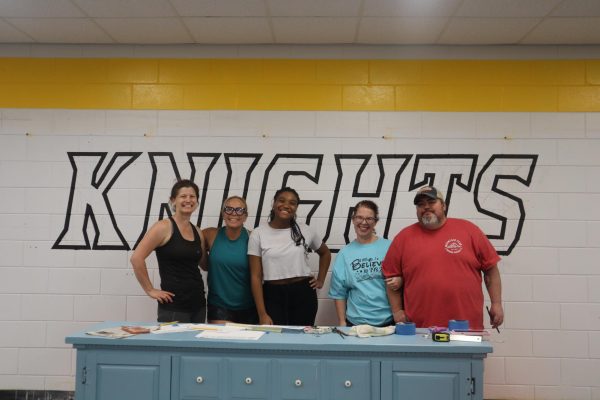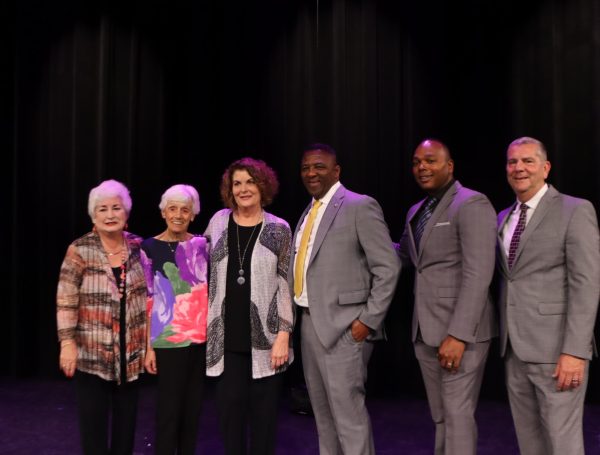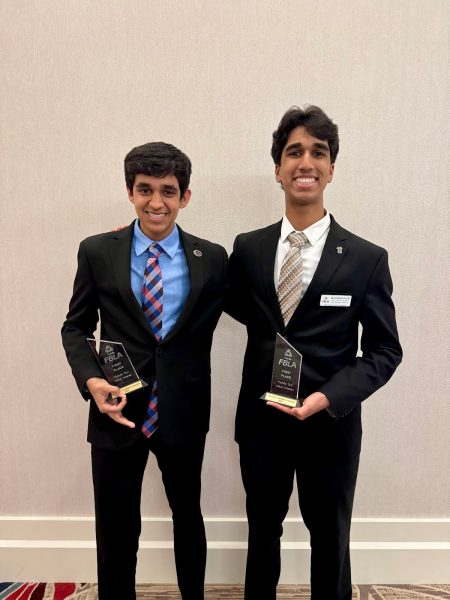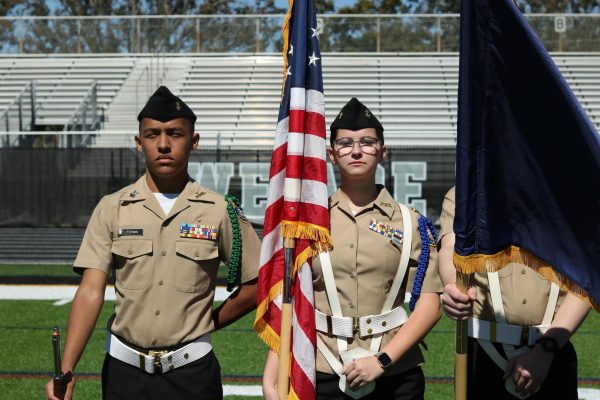UNICEF’s Hunger Banquet gives students a new perspective on food
Photo Anna Woodward
“…world hunger is a big problem that causes generational poverty and we should educate ourselves about it,” Nguyen said.
April 25, 2019
On Thursday, April 18, Robinson’s UNICEF Club had their annual Hunger Banquet. The event lasted one hour and gave participants the opportunity to see hunger from a new perspective.
At the Hunger Banquet, goers are divided into lower, middle and upper economic statuses. Each participant is given a card which separates them into the three classes. The style and amount of food received is based on their assigned status. The goal of the Hunger Banquet is to simulate how food and socioeconomic classes are linked.
“You come to the Hunger Banquet, you get an ID card and it tells you your character for the night, it tells you your economic status, so you can be low economic status, middle, or high,” Alyssa Ackbar, Senior President of UNICEF Club said. “In relation to that economic status, you get a certain style or amount of food, and it just shows you the disparity between food and socioeconomic class.”
In previous years, Ackbar spoke and told participants the importance of the event, but this year, Lena Nguyen, UNICEF Club’s Junior President, spoke. Nguyen told participants why they were there and simulated the effect of socioeconomic status on where goers would end up: the low, middle, or upper class section.
“Speaking instead of being a participant will change my experience because I’ll be able to directly and actively impact the audience with the true purpose of the Hunger Banquet,” Nguyen said.
The goal of the Hunger Banquet is to educate people who may not be exposed to the hardships of hunger to what goes into getting food and how much of a struggle it can be to get necessary supplies.
“As privileged people who live in a first world country, that have access to water, have access to food, I think it’s important for us to open our eyes to issues that we may not experience in our everyday lives,” Ackbar said.

